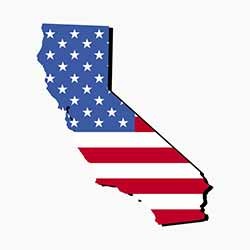How California Could Go About Legalizing iPoker in 2016

At the start of 2015, many California lawmakers felt positive there was a good chance online poker would be legalized in the state before the end of the year. The Congressional year has now ended, however, without any law being passed, and those same lawmakers do not seem all that optimistic that legislation will be passed in 2016 either. And they’re probably right, at least, they will be proven right if the approach to fighting for the legalization of online poker doesn’t change for the better. Industry insiders suggest that a change in strategy that includes these four key components would greatly increase the overall chance of success.
1: Go Grassroots
Without pressure from their constituents, many California lawmakers are unlikely to make passing online poker legislation a top priority. A strong grassroots movement that is independent of special interest groups and businesses and is made up of registered California voters who want the freedom to play poker online could be successful in drumming up legislative support. This is particularly true if it becomes clear that members of the group have the means to contribute to political campaigns.
2: Empower Regulatory Agencies
Currently, the California Department of Justice and the California Gambling Control Commission are underfunded. In hearings, the agencies have expressed concerns about how they would regulate online poker because of their deficiencies. Lawmakers who are serious about passing online poker legislation need to first ensure that the regulators are empowered, eliminating the excuse that passing a law should be put off until the DOJ and CGCC are fixed.
3: Shift the Focus
Right now, PokerStars seems to be the face of the online poker legalization movement, and this may be doing more harm than good. For one thing, the site’s parent company is not based in California, and the fact that the company operated illegally after online poker was banned has tarnished their reputation. While it’s a positive thing for PokerStars to be involved, the push for legalization should be focused on the players, not on PokerStars.
4: Reach Out to Racetracks
Part of what is holding up legislation is the California racing industry’s desire to be the sole operators of sites. By offering racetracks the ability to share in revenues but not be the only ones in the business, California lawmakers could quiet their opposition. A lucrative deal for the racing industry could align them with grassroots organizers, bringing two powerful voices to the argument for online poker legalization.
Lessons From Other Regulated States
In the past, the four above strategies have worked to bring about online poker legalization in other states. While each state has its own unique political climate, it seems very likely that California lawmakers in favor of online poker could take a lesson from the other states, and do their best to add these four components to the fight. If they do, we just might be assured of a bill finally passing sometime in 2016. If not, legislators are likely to just be wasting another year trying the same old, same old that has never worked before.
California iPoker Potential
If California does eventually succeed in legalizing online poker, the state stands to generate somewhere between $263 million and $384 million in annual revenues, according to research carried out by Academicon. To put that figure into perspective, New Jersey is averaging around $2 million in monthly iPoker revenues, or around $24 million per annum, while Nevada and Delaware’s iPoker revenues are negligible in comparison.
Needless to say, California dwarfs most other US states in terms of both population (38m) and economy ($2.2 trillion), and would represent a ‘jewel in the crown’ for online poker operators. Furthermore, having such an affluent and influential state adopt regulation could potentially be a game-changer for the country’s fledgling iPoker market, which has continued to underwhelm over the past couple of years. While a federal law allowing online poker is unlikely to be adopted anytime soon, California could be instrumental in persuading other smaller states to join a shared network, and all the benefits that may bring. As Dr. Ingo Fiedler, co-author of the Academicon study, explains:
“The size of the market depends strongly on the decision to either limit the player pool to in-state residents or participate in a federal or international network of players.”










